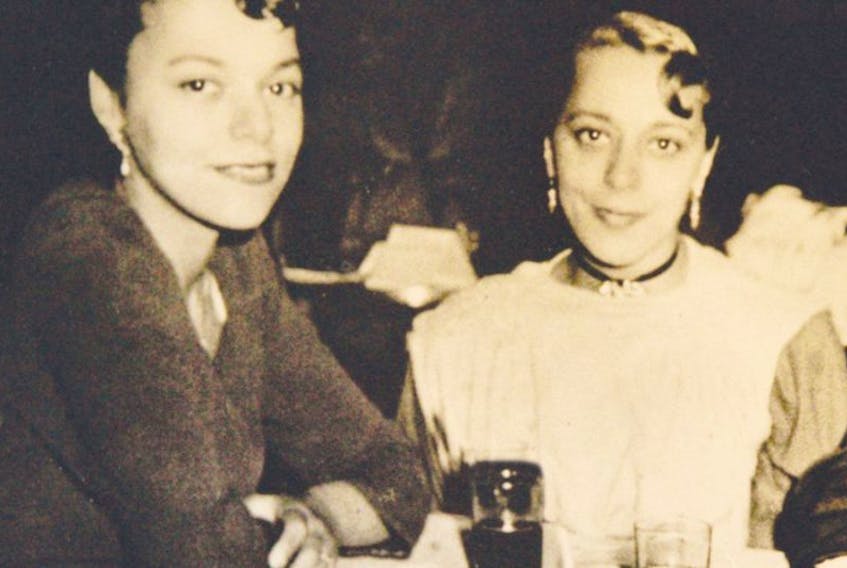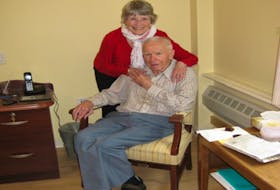NEW GLASGOW, N.S. – When Viola Desmond took a seat in a New Glasgow movie theatre in 1946, she didn’t intend to make a stand.
The Halifax entrepreneur was travelling on business when she had to stop in Pictou County to have her car repaired. While waiting, she decided to watch a movie at the Roseland Theatre and purchased a ticket for the show. After taking her seat in the downstairs section of the theatre, she was told to move to the balcony because she had paid for the cheaper ticket. The theatre refused to sell her a ticket for the main floor; Desmond refused to move to the balcony.

She was arrested, was put in a jail cell overnight and appeared in court the next day where she was charged with defrauding the federal government of the difference in tax between the upstairs and downstairs tickets.
As she told a Halifax Chronicle reporter in an interview about the incident later that month, she sat where she did to be closer to the screen because of her eyesight. She also wasn’t aware of the unwritten policy that only white people could sit in those seats.
Her choice of seats in the Roseland Theatre that day led to her arrest, unlawful conviction, a subsequent appeal - and her treatment sparked dialogue about human rights in Nova Scotia
RELATED: History is her story, too
Who was Viola Desmond?
Born in 1914, one of 15 children, Desmond trained as a teacher and later attended college in Montreal, New York and New Jersey, where she studied to be a beautician. She married Jack Desmond and together they operated a barbershop and hairdressing salon in Halifax.
Seeing a need for professional hair and skin care products for black women, Desmond developed her own line of specialized beauty products. She also established the Desmond Studio of Beauty Culture, and the Desmond School of Beauty Culture.
“To be a black entrepreneur was ground-breaking,” Henderson Paris, a New Glasgow town councillor and founder of the Run Against Racism, said in 2015.
“She was building her business and through this – this incident unfolded. Being the strong woman she was – she wasn’t standing for it. It was not right, and something needed to be done.”
“She was an everyday person... this tiny little woman, it’s such an example of strength and determination and education and dignity, respect that was this whole little woman,” Desmond’s sister, Wanda Robson told the Cape Breton Post ahead of the first Nova Scotia Heritage Day in 2015, which honoured Desmond. Robson is the author of Sister to Courage: Stories from the World of Viola Desmond, Canada’s Rosa Parks.

New Glasgow’s Roseland movie theatre, where in 1946 Viola Desmond was arrested for sitting in a white’s only seating section at the time.
Taking a seat for social justice
“She laid the foundation in regards to justice and how black people were being treated in Nova Scotia. Even though it happened in New Glasgow, similar incidents were happening all over the province,” said Crystal States, an educator with the Black Educators Association and the representative for the African Nova Scotian North Central Network told The News in 2015.
“It was a breakthrough in social justice that had predated the civil rights movement in the (United) States,” States said ahead of the first Nova Scotia Heritage Day, which honoured Desmond.
Rosa Parks is credited with inspiring the modern civil rights movement in the United States after she was arrested in 1955 for refusing to give up her seat on a bus for a white man.
“It’s important to remember what (Desmond) did because, unlike Rosa Parks – whom she predates – she did not set out to fight racial injustices, she just happened to fall into the midst of a place that upheld the Jim Crow Law”, States added. “And because of that incident, she and other individuals and groups and organizations rose to the occasion to change the segregation laws in Canada.”
New Glasgow resident Cherry Paris worked with the Human Rights Commission for 18 years. In 2015, she told the News she remembered the time when black people were denied the right to enter certain restaurants, barbershops and salons because of the colour of their skin.
“We would never go in those places because we were not permitted,” she said.
Desmond’s legal fight has been credited with leading to the elimination of segregation in the province. In 1954, segregation in schools ended, which was the only segregation law in the province of Nova Scotia.
Cherry Paris said the 2015 Viola Desmond Day was important to honour that struggle.
“This recognition speaks volumes when we look at social justice and just how far we have come in regard to race relations and correcting the mistakes of the past injustices,” she said.
Legal mishandling
Retired Pictou County judge Clyde Macdonald said Desmond was found guilty without having been advised of her right to a lawyer or to cross-examine any of the witnesses at the trial.
Desmond paid the $26 fine and returned to Halifax, where she was encouraged to appeal the conviction. Because of legal technicalities, the appeal was unsuccessful.
“The unfortunate thing is her lawyer in Halifax chose the wrong route for appeal and the conviction was upheld,” said Macdonald in 2015. He knew about the case and brought it to the attention of a Halifax newspaper reporter decades later, ultimately leading to her 2010 posthumous free pardon by the Nova Scotia government that acknowledged her innocence.
“It’s fair to say she was the seed planted to improvements, and paved the way for the human rights commission and light put on segregation,” he added.
After Desmond’s marriage ended, she closed her beauty shop and moved to Montreal, and then New York, where she died Feb. 7, 1965, at age 50. She is buried at Camp Hill Cemetery in Halifax.
In addition to the 2015 Heritage Day and a number of other honours, a chair in social justice was named in her honour at Cape Breton University and she has been commemorated with a postage stamp.
Editor’s note: A version of this article appeared on NgNews.ca in February 2015 as Many hope day honouring Viola Desmond will highlight fight for social justice. Additional files from NgNews.ca and CapeBretonPost.com









